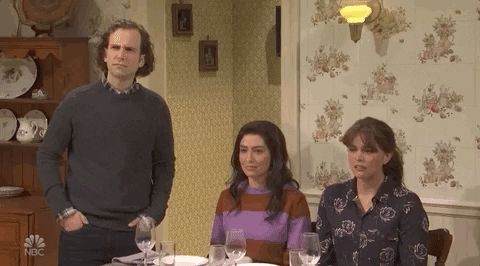The Last Fifteen Minutes Syndrome by Ori Lenkinski

*originally published in Hebrew on the Parental Choreography blog on Haaretz.co.il
I once heard a theory that every dance piece has no more than seven great minutes in it, regardless of its length. The person purveying this theory argued that any great creation, from Swan Lake to Café Muller, could be boiled down to seven essential minutes in which all important ideas, aesthetics and movements would be present once and only once. He believed that beyond seven minutes, all choreography was a repetition of itself.
While I do not wholly agree with this theory, I think of it often when seeing performances.
Time and again, a piece will end fifteen minutes after its own perfect, internal ending. And in these fifteen minutes, there is an uncomfortable energy in the theater. We begin to shift in our seats, to surreptitiously glance at hidden cellphones, to whisper to our neighbors and generally to lose patience. In these stolen moments, the audience experiences a type of despair, an undoing of all the enjoyment accumulated in the forty- or fifty of sixty-minutes prior. In these moments, the audience goes from recipient of the art to prisoner of it.
When an audience leaves a performance and says, “it was too short,” the artist can glean that they have succeeded.
The “last fifteen minutes” syndrome is well-known amongst artists.
It serves as a warning, an impetus to edit brazenly, to whittle one’s work down to the essentials. Because having an audience turn on you in the last few minutes of an otherwise successful work is a terrible outcome for anyone.
And yet, time and again, artists create works that are too long, with seemingly no thought of their audience’s attention spans.
In pondering why this happens, I think of family dinners.
Inevitably, family gatherings go on a little too long, past the point where everyone is happy to be together, past the dinner, dessert, coffees and teas and into a strange no-man’s-land of social interaction. The kids get cranky, the conversation runs dry, someone gets upset, screens arise from the purses and pockets they’ve been stuffed into. This desire to stay together, to milk the last drops of family time, is similar in nature to that need for one more scene, one more phrase, ten more minutes set to one last piece of music.
In both, we unravel the pleasure of the thing itself by stretching it too far. The root of this is a type of Catch 22. We love what we are doing or who we are with so much that we find it hard to cut our time short. Yet in letting the clock run, we inadvertently compromise the quality of the time we have spent. Wouldn’t we be happier to leave each performance and each family gathering with a taste for more? Wouldn’t it be better to shorten each show, each dinner, by fifteen minutes and save them for the next time?
Knowing when to say “this is enough” is an acquired skill. It takes restraint and sensitivity. It requires us, in the height of the moment, to wrap things up and move on. Overstaying our welcome on stage or at our parents’ house can only lead to impatience, grumpiness and frustration.
